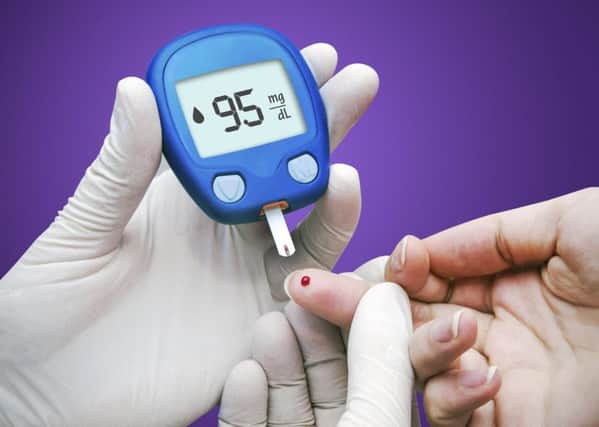Scots trial to test mindfulness for diabetes patients


Now Scottish scientists will explore whether mindfulness can help patients to control their Type 1 diabetes as part of a new two-year study.
Type 1 diabetes occurs when the body is unable to produce insulin to regulate blood sugar levels, and it is not linked to lifestyle factors or weight.
Advertisement
Hide AdAdvertisement
Hide AdManaging the condition involves a constant balancing act for patients to level out their blood sugar using insulin injections, careful diet and exercise.
There are over 276,000 people living with diabetes in Scotland, and the condition can lead to blindness, amputations, kidney failure and stroke if not managed correctly.
More than 75 per cent of type 1 patients in Scotland have struggled to manage their condition, according to recent analysis by Diabetes Scotland.
A team led by Aberdeen University plans to see whether practising in mindfulness leads to lower blood glucose levels and reductions in anxiety and depression that many diabetes patients experience.
Lead investigator Dr Andy Keen, a health psychologist specialising in diabetes at Aberdeen University and NHS Grampian, said: “Both these conditions have characteristics that make managing diabetes even harder.
“For example, people who are anxious have high levels of stress hormones such as adrenalin and cortisol, and these cause glucose to be released into the bloodstream, driving up blood glucose levels.
“Also, depression is characterised by fatigue and low motivation, which can make it tricky to devote the time and energy required to manage complex long-term conditions like diabetes.”
A specially designed mindfulness-based cognitive therapy course led by psychologists from NHS Grampian has been shown to reduce anxiety and depression symptoms in people with diabetes during informal testing.
Advertisement
Hide AdAdvertisement
Hide AdMindfulness incorporates aspects of meditation, breathing and yoga, and has been recommended as a treatment for people with depression in England.
Google even employs a head of mindfulness training to help stressed-out employees.
Dr Keen said: “It is best to think of mindfulness as a skill. It is a way of helping people be better able to focus on the ‘here and now’ of their lives, and disengage with unhelpful ways of thinking, such as worry and rumination.
“If you change the way people think, then you change the way they feel. We definitely know that anxiety and depression can be significant barriers to effectively managing diabetes, and by alleviating these we can give people the opportunity to invest more time and energy into looking after themselves if they want to do that.”
The two-year pilot will examine how mindfulness impacts on adults with Type 1 diabetes with high blood glucose levels, which could lay the groundwork for a larger-scale study.
Participants will attend a mindfulness group one evening a week for eight weeks, and practice mindfulness at home.